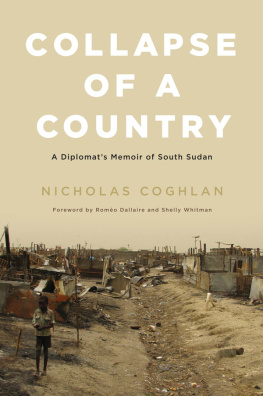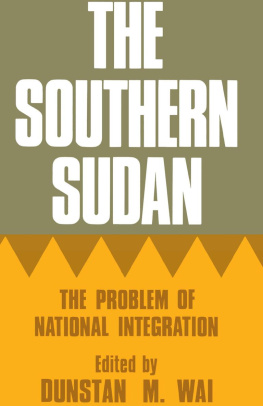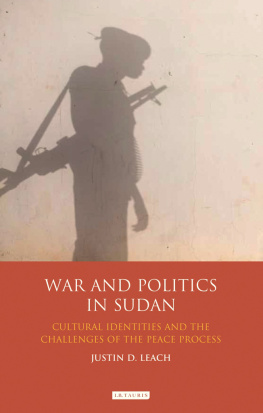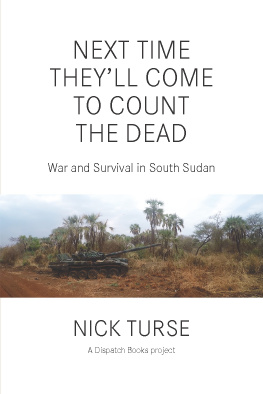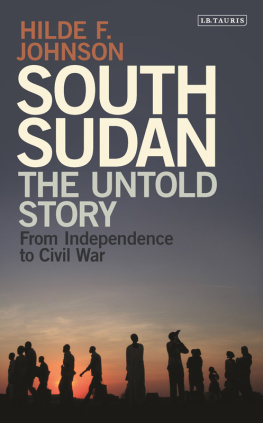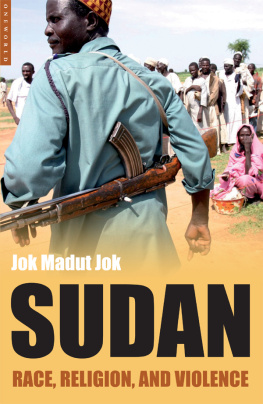
COLLAPSE OF A COUNTRY
Collapse of a Country
A Diplomats Memoir of South Sudan
NICHOLAS COGHLAN
Foreword by Romo Dallaire and Shelly Whitman
McGill-Queens University Press
Montreal & Kingston London Chicago
McGill-Queens University Press 2017
ISBN 978-0-7735-5126-8 (cloth)
ISBN 978-0-7735-5179-4 (ePDF)
ISBN 978-0-7735-5180-0 (ePUB)
Legal deposit third quarter 2017
Bibliothque nationale du Qubec
Printed in Canada on acid-free paper that is 100% ancient forest free (100% post-consumer recycled), processed chlorine free
McGill-Queens University Press acknowledges the support of the Canada Council for the Arts for our publishing program. We also acknowledge the financial support of the Government of Canada through the Canada Book Fund for our publishing activities.
Disclaimer: The views of the author expressed herein do not necessarily represent those of the Government of Canada. The names and immediate circumstances of some individuals mentioned have been altered for the sake of their personal security and/or privacy.
Library and Archives Canada Cataloguing in Publication
Coghlan, Nicholas, 1954, author
Collapse of a country: a diplomats memoir of South Sudan/Nicholas
Coghlan; foreword by Romo Dallaire and Shelly Whitman.
Includes bibliographical references and index.
Issued in print and electronic formats.
ISBN 978-0-7735-5126-8 (hardcover). ISBN 978-0-7735-5179-4 (ePDF). ISBN 978-0-7735-5180-0 (ePUB)
1. South Sudan Politics and government 2011. 2. South Sudan History 21st century. 3. South Sudan Social conditions. 4. Coghlan, Nicholas, 1954. 5. Diplomats Canada Biography. 6. Diplomatic and consular service, Canadian South Sudan. 7. South Sudan Foreign relations Canada. 8. Canada Foreign relations South Sudan. I. Title.
DT159.947.C64A3 2017 | 962.9051 | C2017-902157-5
C2017-902158-3 |
This book was typeset by Marquis Interscript.
For John, 19232016
Foreword
ROMO DALLAIRE AND SHELLY WHITMAN
It was May 2015 in Kampala, Uganda, when we met Ambassador Nicholas Coghlan for the first time. We both remember feeling impressed that he would make his way from Juba to have discussions with us about how The Romo Dallaire Child Soldiers Initiative might be able to make a positive impact in South Sudan. The ease of the discussions that ensued, combined with his genuine concern for millions of vulnerable people in South Sudan, particularly the children, gave us hope that maybe collectively we could find an entry point for new solutions.
Nick was a rare breed, demonstrating great humility while at the same time displaying immense intellectual understanding of the complex conflict in South Sudan. He is the ultimate example of a humanitarian at his core, yet seasoned with wisdom that has not deterred his desire to see a better world. It is without a doubt this that appealed to and impressed us both, as people who continually believe that all humans are human but recognize that this is not a belief shared by all of humanity.
Our visit to South Sudan in November 2015 would not have been possible without the assistance and support of Nick Coghlan. He demonstrated why the South Sudanese, as well as the NGOs and diplomatic corps, held him in such high regard. Walking through Pibor District on a day when temperatures reached upwards of 45 degrees Celsius, all of us in knee-high rubber boots, it was easy to forget that Nick was a diplomat. He carried himself as a man of the people, and it was clear he had conducted such missions more times than is possible to count. Local people waved to Nick as we trudged through the muddy terrain while he recounted the local politics and history. It was on this day that, together with Nick and UNICEF, we were able to negotiate the release of 300 children from the ranks of the Cobra Faction in Pibor district.
Reading this impressive account of Nicks time in South Sudan, it is challenging not to reminisce about Rwanda in 1994. All too often during our visit in November 2015 parallels were continually drawn between these two countries, and advice was sought in the midst of a very real and continual sense of impending disaster. Yet despite such comparisons, Nick did not lose hope. Instead he seemed even more determined to seek innovative solutions.
At the kind invitation of Nick and his wife Jenny, we attended a dinner at their residence over the course of that visit. It was clear that this was a couple that had endured the uncertainties and challenges of a conflict zone and reinforced each others resolve. Both of them easily conversed about political dynamics and recounted stories about the people they had come to know in South Sudan with a great sense of hope.
In attendance that night was the United Nations special representative to the secretary-general for South Sudan, Ellen Margrethe Loj. Ellen began the evening by saying it was General Dallaires fault that she had taken up this post in South Sudan. She had read Shake Hands with the Devil, and felt morally obligated to accept this position, as often too many good people fail to do, accepting her responsibility to make a difference in the face of evil. This encounter, and many others that materialized during this visit, provided a stark reminder that light can be shed in dark places no matter how dire the situation may seem.
Collapse of a Country: A Diplomats Memoir of South Sudan is a book that must be read by anyone who wishes to understand the complexity of the birth of this new nation. It details the demands and moral dilemmas that can arise from undertaking an ambassadorial posting. Negotiating the political corridors of Ottawa, as well as the relationships with corporations and allies on the ground, is difficult during the best of times. Nicks personal account of how he managed his role as an ambassador during this time is a remarkable reflection of his passion and integrity.
Canadians often do not get to know those who represent us as a nation, selflessly committing their lives and those of their families to causes and people that may seem so remote from their own world. Ambassador Nick Coghlan was a beacon of light at a time when we were unclear what we were projecting to the rest of the world in terms of our participation in addressing some of the greatest humanitarian crises that existed. It is our sincere hope that many Canadians will read this book by one of those unsung heroes who exemplifies the essence of who we are as Canadians a nation built on the premise that all human beings deserve to be treated with dignity with the opportunity to live in peace and harmony.
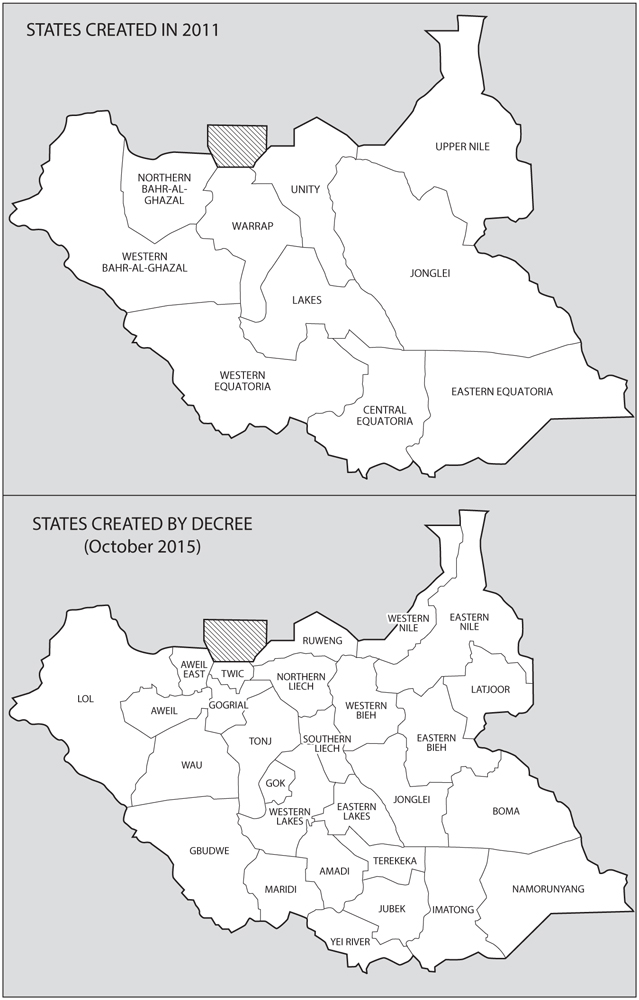
Above: South Sudan and its ten states at the time of independence (2011). Below: South Sudan following the presidential decree creating twenty-eight states (October 2015)
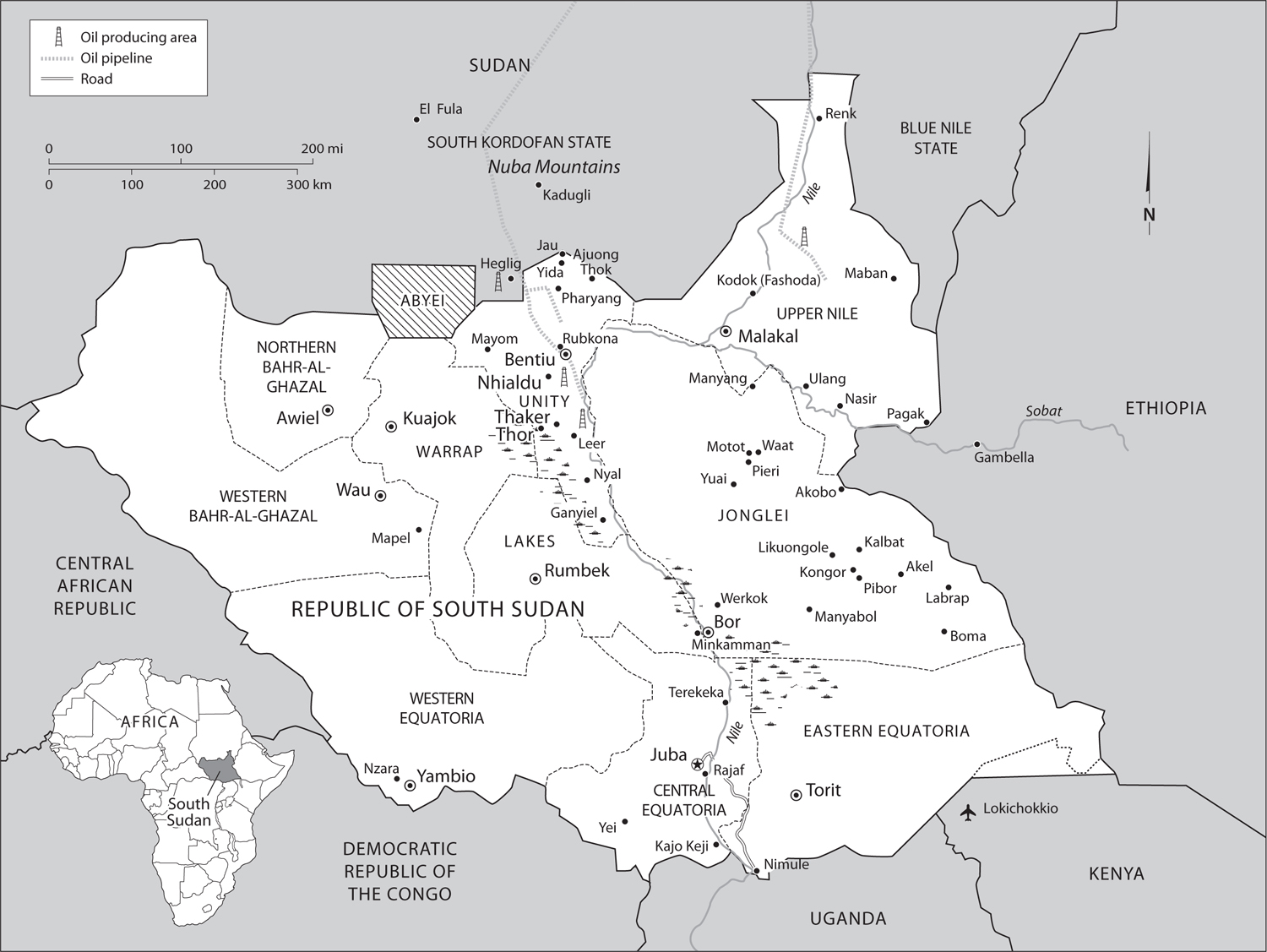
The Republic of South Sudan
Prologue
Juba, South Sudan, Monday, 16 December 2013
I woke at about three in the morning to thunder and lightning. Odd, I thought, as the storm passed and the rhythmic whirr of the ceiling fan took over again. The rainy season had ended a few weeks back. I drifted back to sleep.
Shortly after 6:00 a.m. it started to get light and I could hear a staccato crackling outside. I got up, rubbed my eyes, and pushed aside the net curtain. There was no sign of rain. I pulled on a pair of trousers, walked to the front door, and peered out. It was going to be another hot hazy day. John and Emmanuel, our two night guards, were standing across the paved courtyard by the main gate. John saw me and came over shouting.
Next page
